spvn
Rust ASGI bindings for python.
Features
- Drop and go CLI for replacing transport layer handling
- ASGI compliant protocols allowing direct import and use of python through rust
- Fast
Sneak Peek
fastapi before
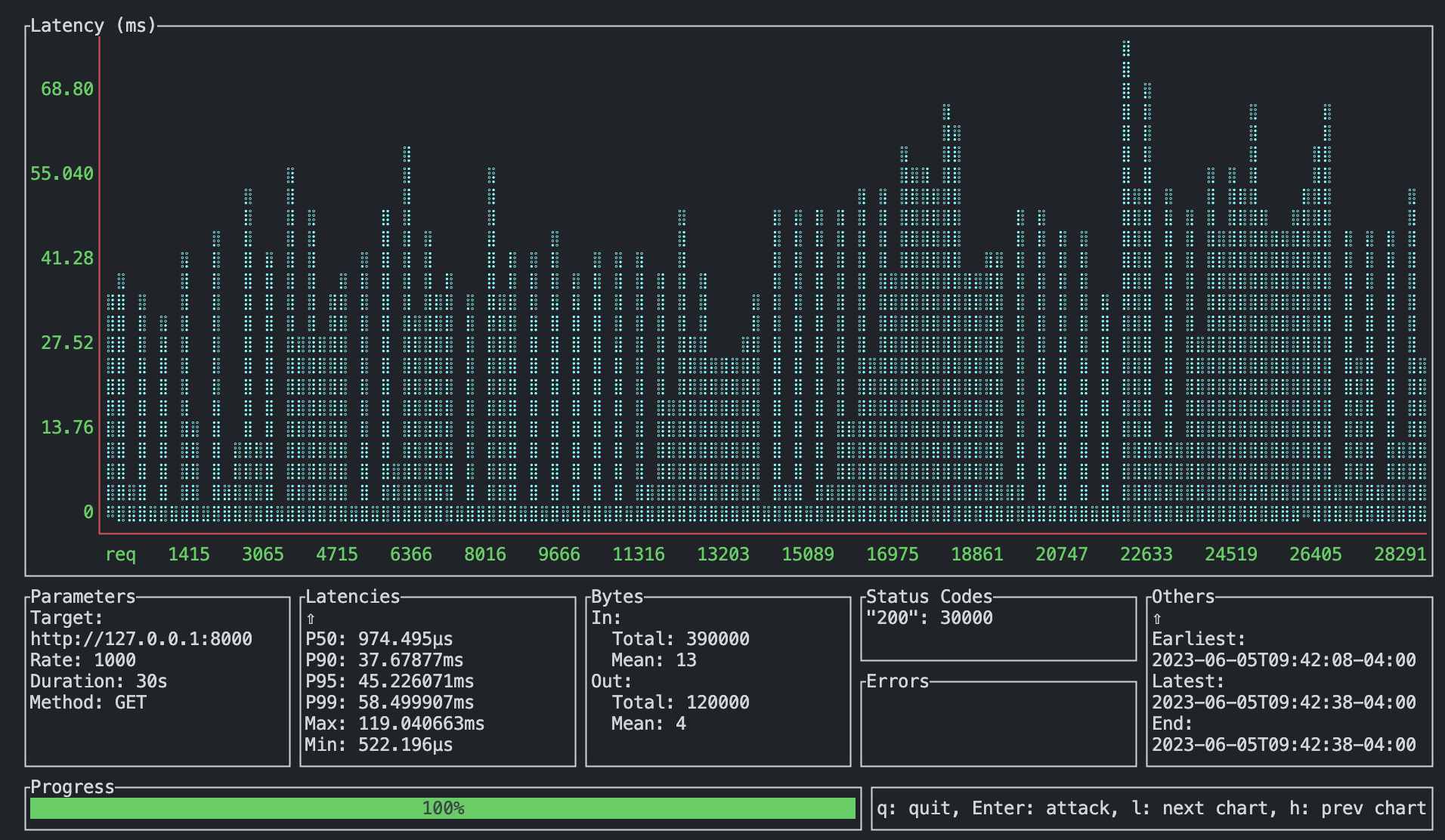 fastapi after
fastapi after
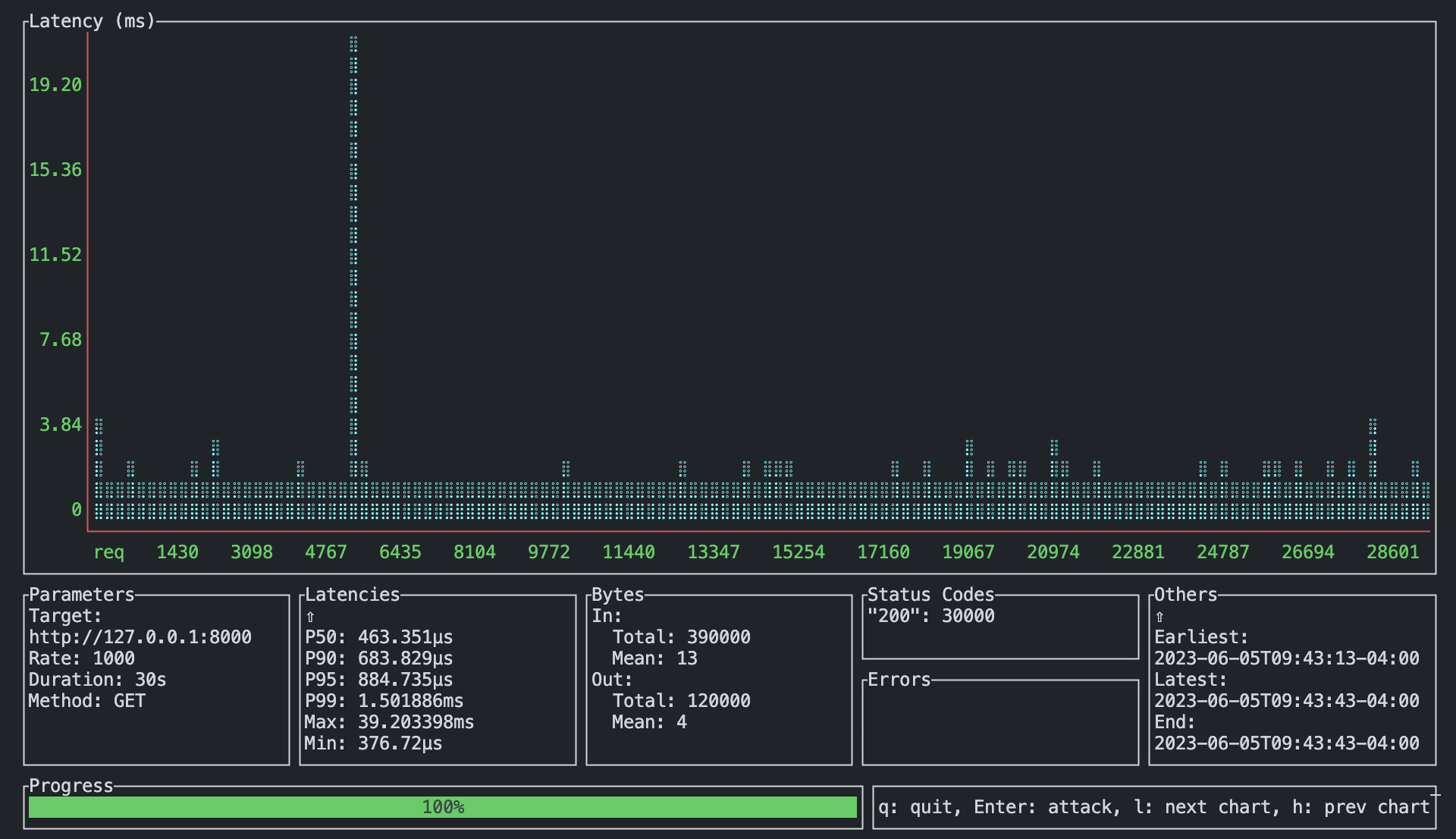
- p99 @ 38x
Rationale & Goals
-
Relieve limits by python in networking applications
-
Safe python threadpooling
-
Uvicorn drops requests & stalls on IO > 7500 concurrent clients
-
Hypercorn drops requests & stalls on IO > 7500 concurrent clients
In both, we must horizontally scale to accomodate these limits in our systems. This is further accompanied by essentially a second layer of IO bound processes, which are evidently unable to maintain highly concurrent environments
What spvn does
Delegation of connection multiplex, stream, and IO processes into Rust, and autoinjection at runtime following standard ASGI protocol.
Performance
Tests performed using ali. See ali for methodology.
spvn @ 1000 reqs/s, 30s sustained

- app: fastapi
- file: dotest.bit:app
spvn @ 5000 reqs/s
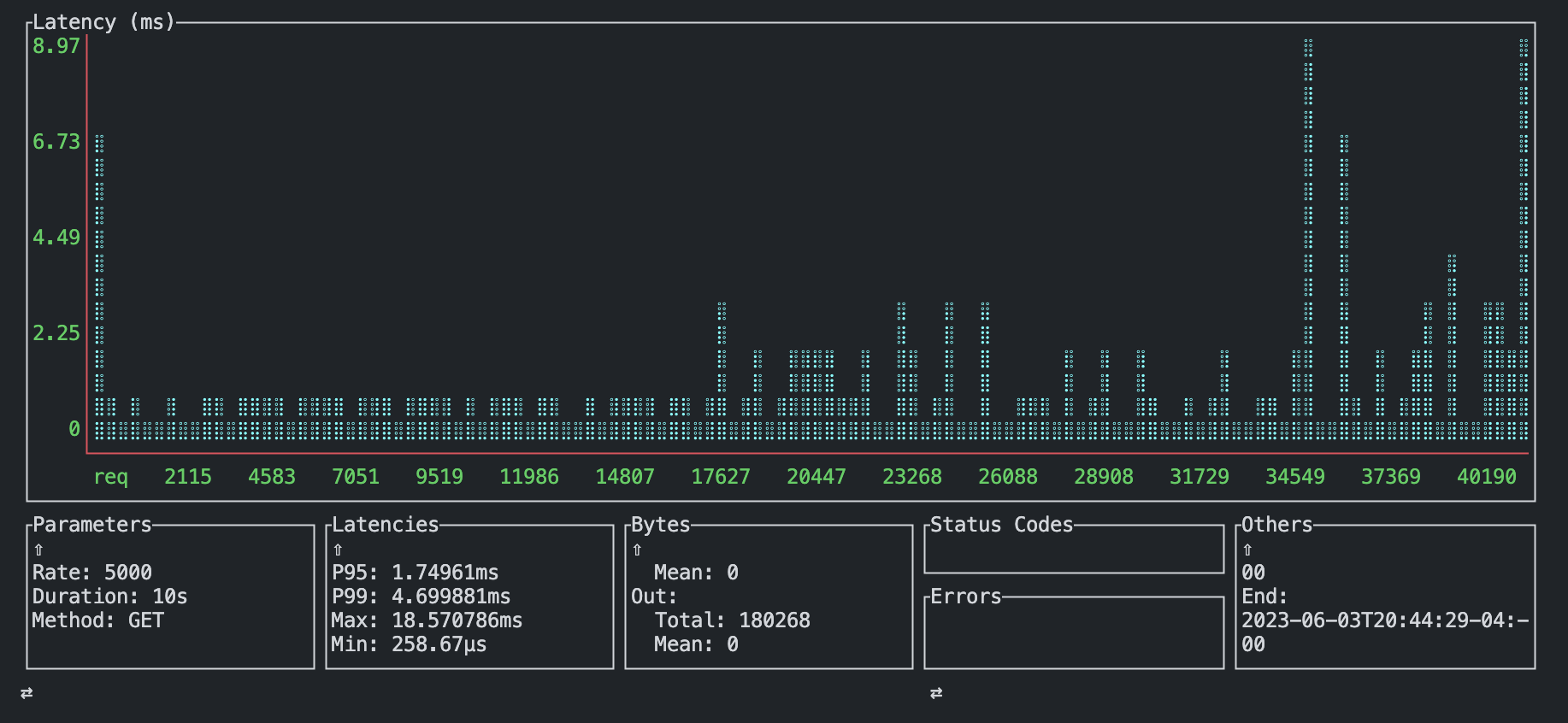
- app: custom
- file: dotest.baz:app
spvn @ 10000 reqs/s
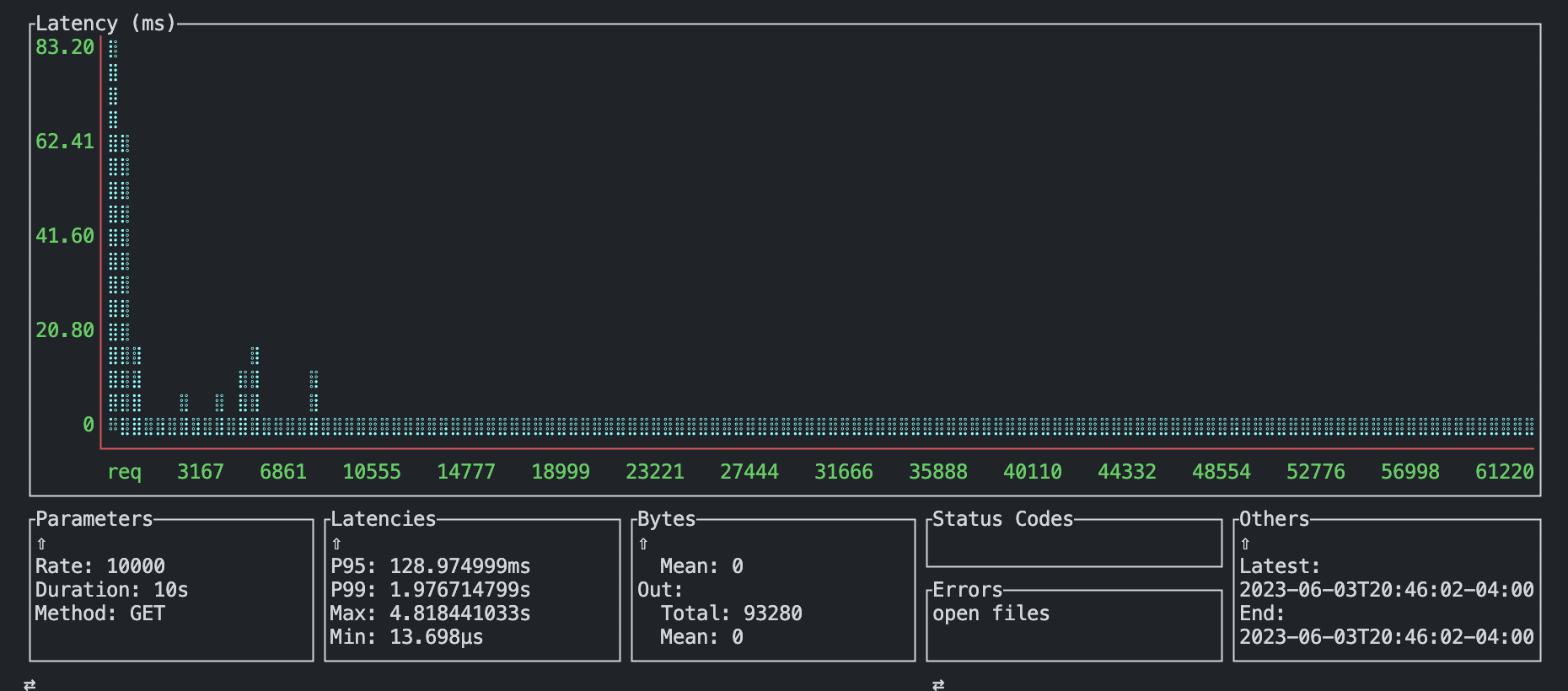
- app: custom
- file: dotest.baz:app
uvicorn @ 1000 reqs/s
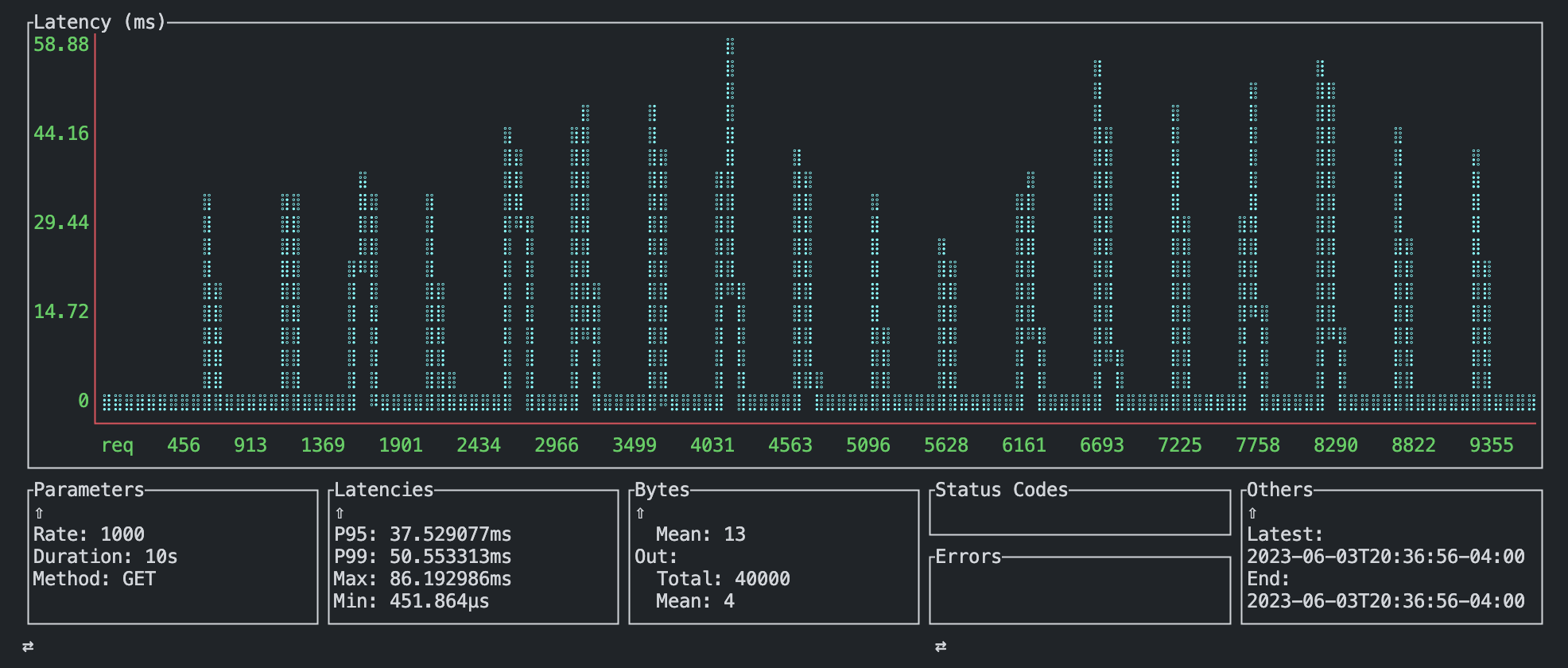
- app: custom
- file: dotest.baz:app
uvicorn @ 5000 reqs/s (DDOS Success)
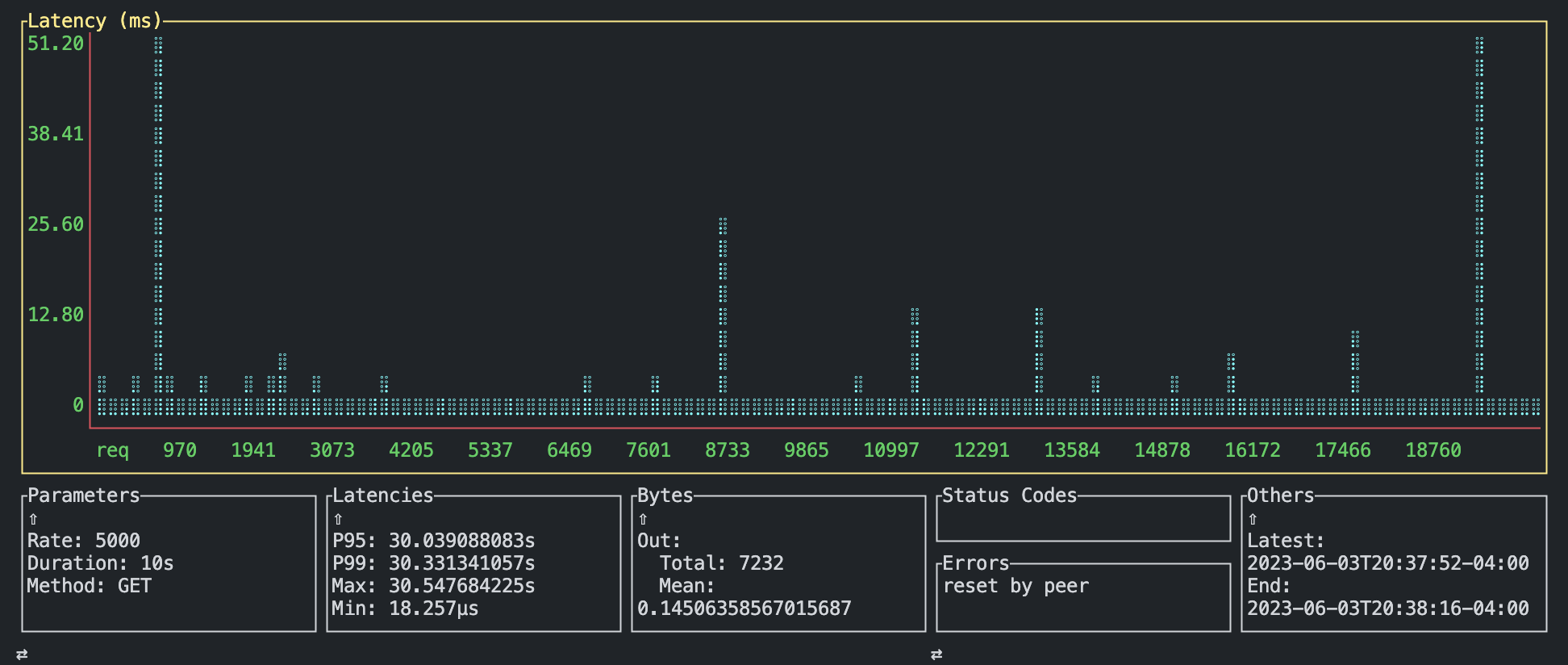
- app: custom
- file: dotest.baz:app
hypercorn @ 1000 reqs/s
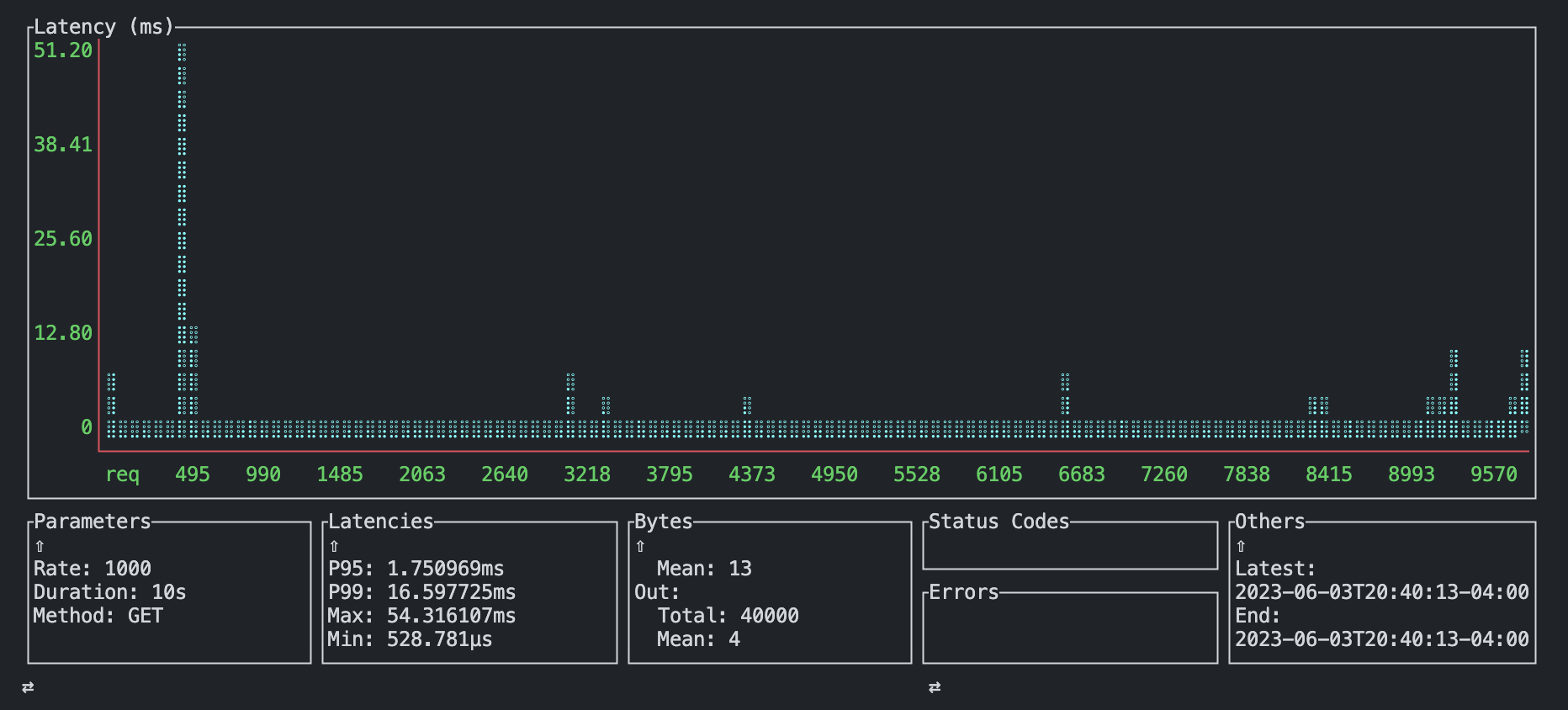
- app: custom
- file: dotest.baz:app
hypercorn @ 5000 reqs/s (DDOS Success)
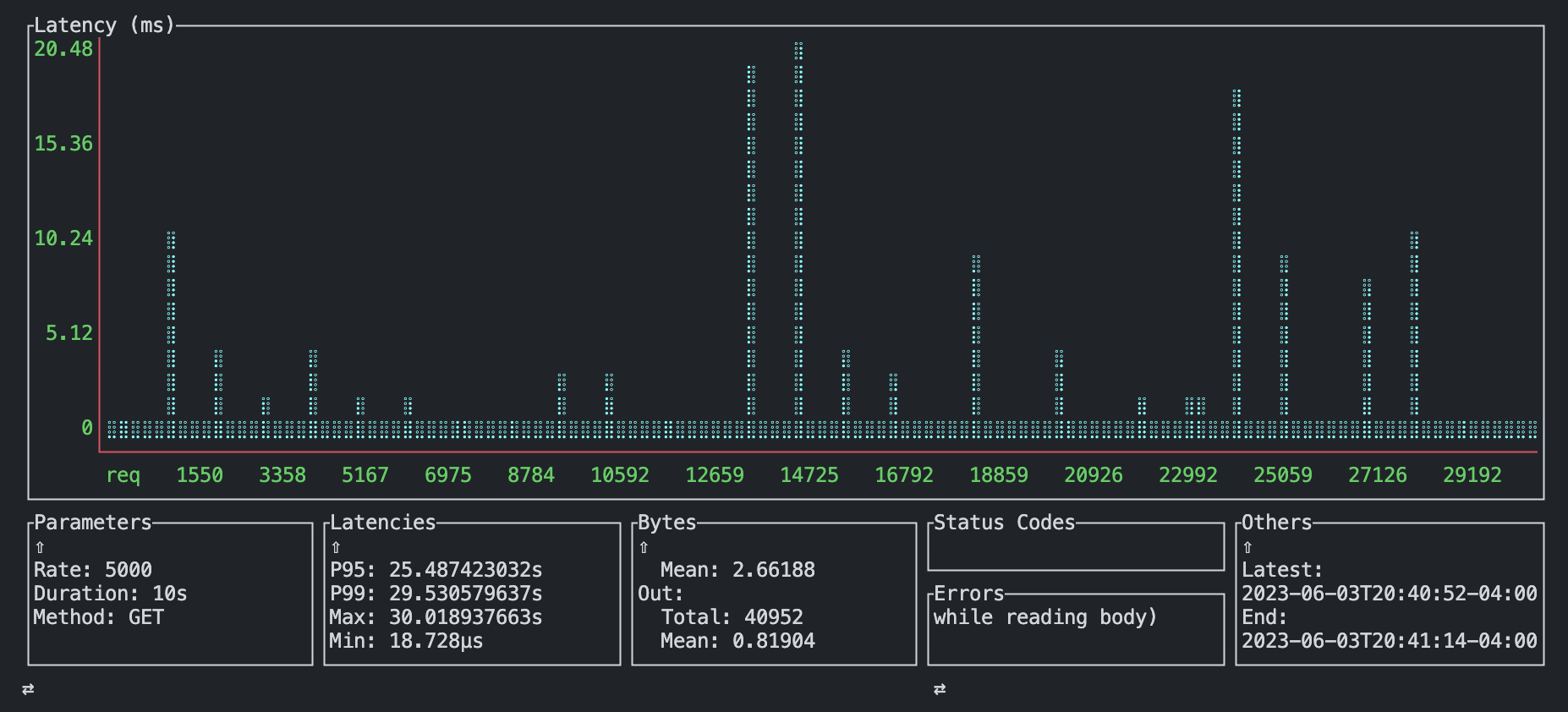
- app: custom
- file: dotest.baz:app
Installation
spvn is offered as beta currently, keep in mind it has quirks and some features might be untested. for this reason, we dont recommend it for production use yet. if you find a bug, please submit an issue!
pypi
pip install spvn
crates
Developing
Project Status
Roughly in order of priority
-
[✅] Integrate standard import semantics
-
[✅] PyCaller
- [✅] (rust) Async safe integration
- [✅] Abstract (py fn) async / sync handle
- [✅] Caller pool [this will be revised, its too slow]
-
[✅] Standard asgi traits & structs
- [✅] ASGIScope
- [✅] (rust) Async safe integration
- [✅] Conversion from
tower::Body->dict
- [✅] ASGIVersion
- [✅] ASGIMessage
- [✅] Lifecycle Scope
- [✅] HTTP Lifecycle Scope
- [🚧] Websockets (msg integration)
- [✅] ASGIScope
-
[✅] App listener
-
[✅] App dispatcher
- [✅] Async threadsafe
- [🚧] Lifecycle activation for caller objects (unstable)
-
[🚧] App scheduler
- [✅] Injectable
awaitables(rust ptr -> python ptr) - [✅] Async threadsafe
- [✅] Delayed py-fn call
- [🚧] Scheduler into py
- [✅] Injectable
-
[🚧] Live reloader
-
[🚧] Websockets
Pre-requisites
Python >= 3.9
- Use virtualenv / venv
python3.10 -m (venv|virtualenv) env && \
. ./env/bin/activate && \
pip install maturin
- Test bindings by running
maturin develop
Rust >= 1.69.0
- Build CLI
cargo build
- Run CLI
cargo cli serve dotest.foo:app
Configuration
Serve
Usage: spvn serve [OPTIONS] <py import>
Arguments:
<py import>
Options:
--bind <BIND> (bind target, ip:port format)
--n-threads <N_THREADS> (concurrent servers)
--cpu (use number of cpus for concurrency)
-w, --watch (watch & reload, not implemented)
-v, --verbose [env: SPVN_VERBOSE_PROC=] (enable logging, approx 75ms overhead)
--ssl-cert-file <SSL_CERT_FILE> [env: SPVN_SSL_CERT_FILE=] (enable tls)
--ssl-key-file <SSL_KEY_FILE> [env: SPVN_SSL_KEY_FILE=] (enable tls)
--user <USER> (user, unimplemented)
--proc-dir <PROC_DIR> [env: PROC_DIR=] (process directory, important for FD limits on unix, unimplemented)
-l, --lifespan (lifespan, unstable)
-h, --help Print help
Preliminary Performance
Tests performed using ali.
Methodology
Request with 4 byte payload, and common ASGI app executing the following:
async def app(scope, receive, send):
await receive() # added: receive the full payload
await send({
'type': 'http.response.start',
'status': 200,
'headers': [
(b'content-type', b'text/plain'),
],
}) # send a start callback
await send({
'type': 'http.response.body',
'body': b'Hello, world!',
}) # send a body
modified from uvicorn docs
Execution
50 req / s
ali http://127.0.0.1:8000 -b body --rate=50
500 req / s
ali http://127.0.0.1:8000 -b body --rate=500
1000 req / s
ali http://127.0.0.1:8000 -b body --rate=1000
5000 req / s
ali http://127.0.0.1:8000 -b body --rate=5000
Commands
uvicorn
uvicorn dotest.baz:app
hypercorn
hypercorn dotest.baz:app
spvn
spvn serve --target dotest.baz:app
Results
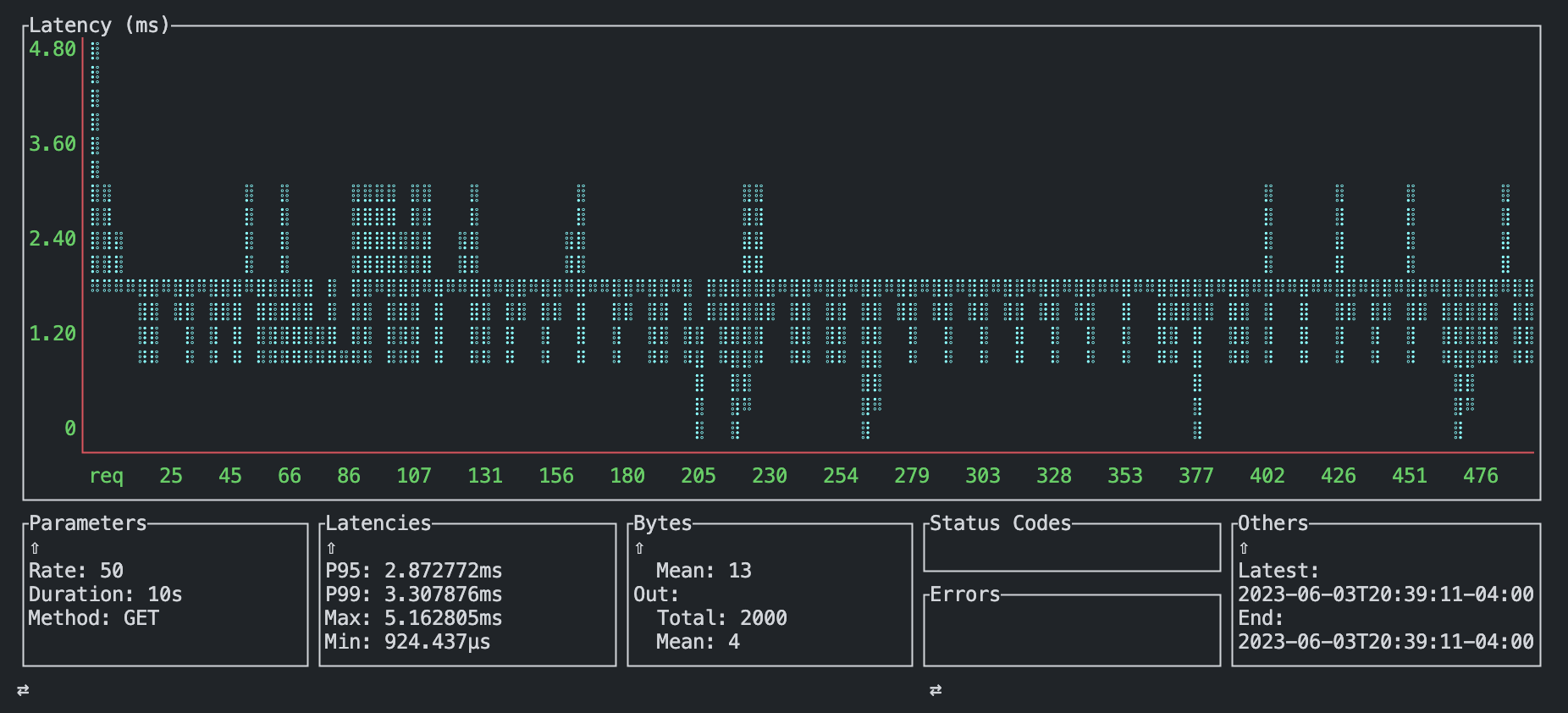 hypercorn @ 50 reqs/s
hypercorn @ 50 reqs/s
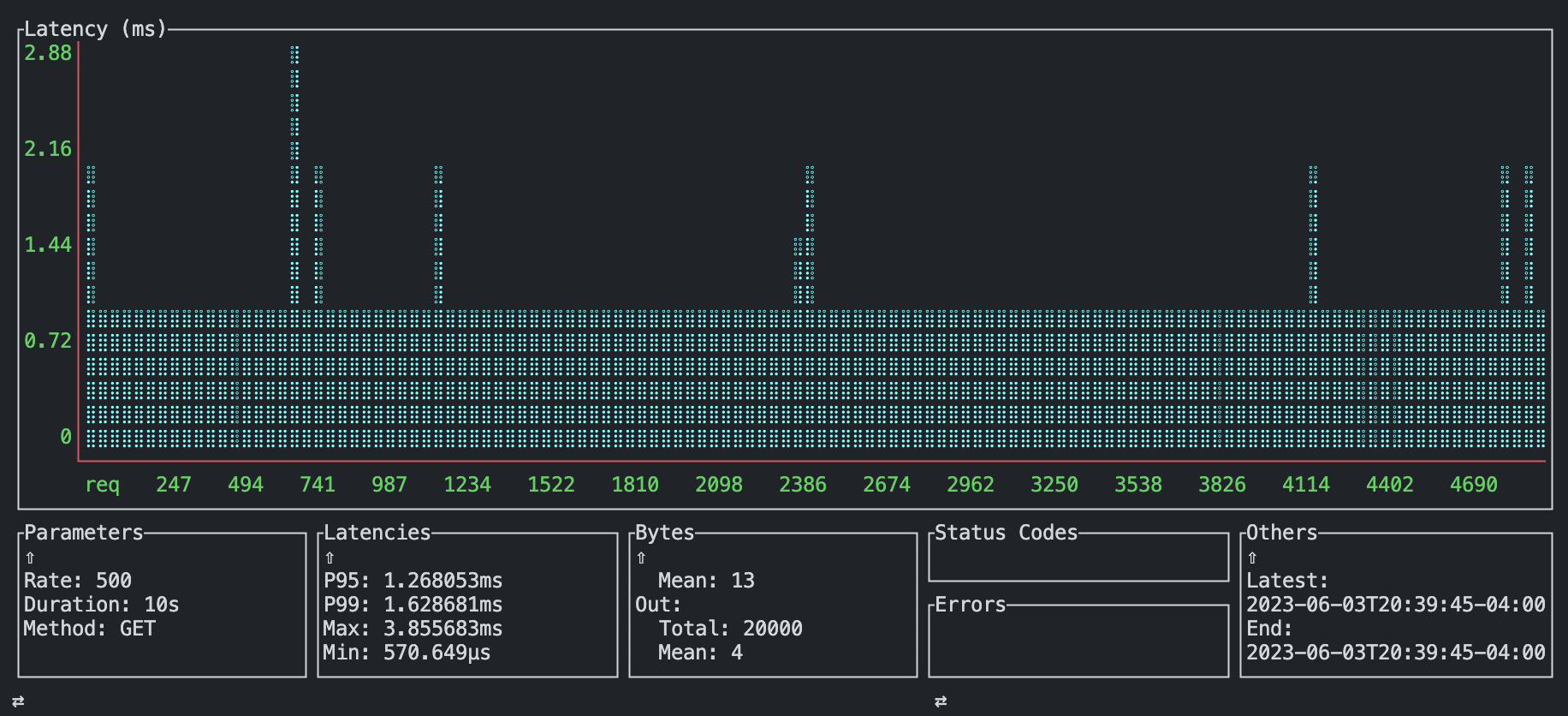 hypercorn @ 500 reqs/s
hypercorn @ 500 reqs/s
 hypercorn @ 1000 reqs/s
hypercorn @ 1000 reqs/s
 hypercorn @ 5000 reqs/s (crash / ddos thresh)
hypercorn @ 5000 reqs/s (crash / ddos thresh)
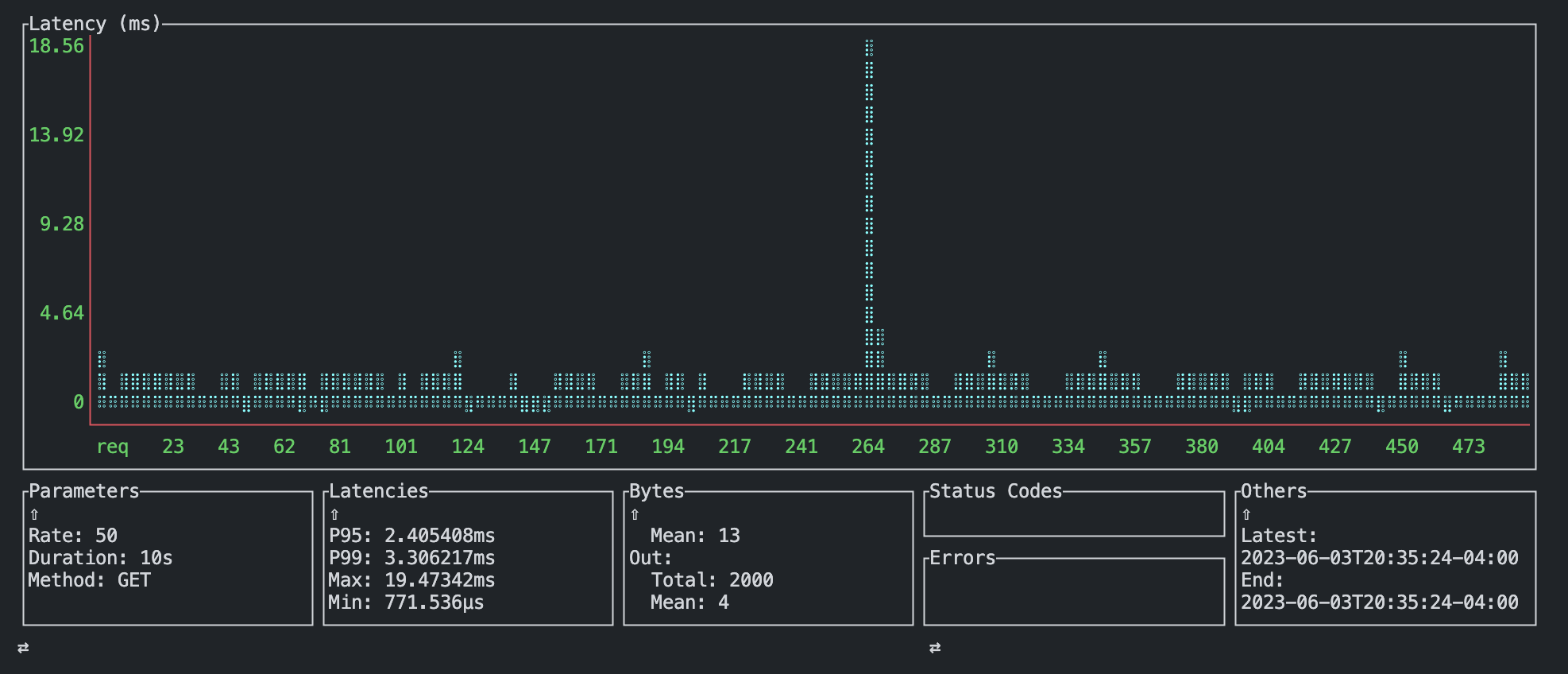 uvicorn @ 50 reqs/s
uvicorn @ 50 reqs/s
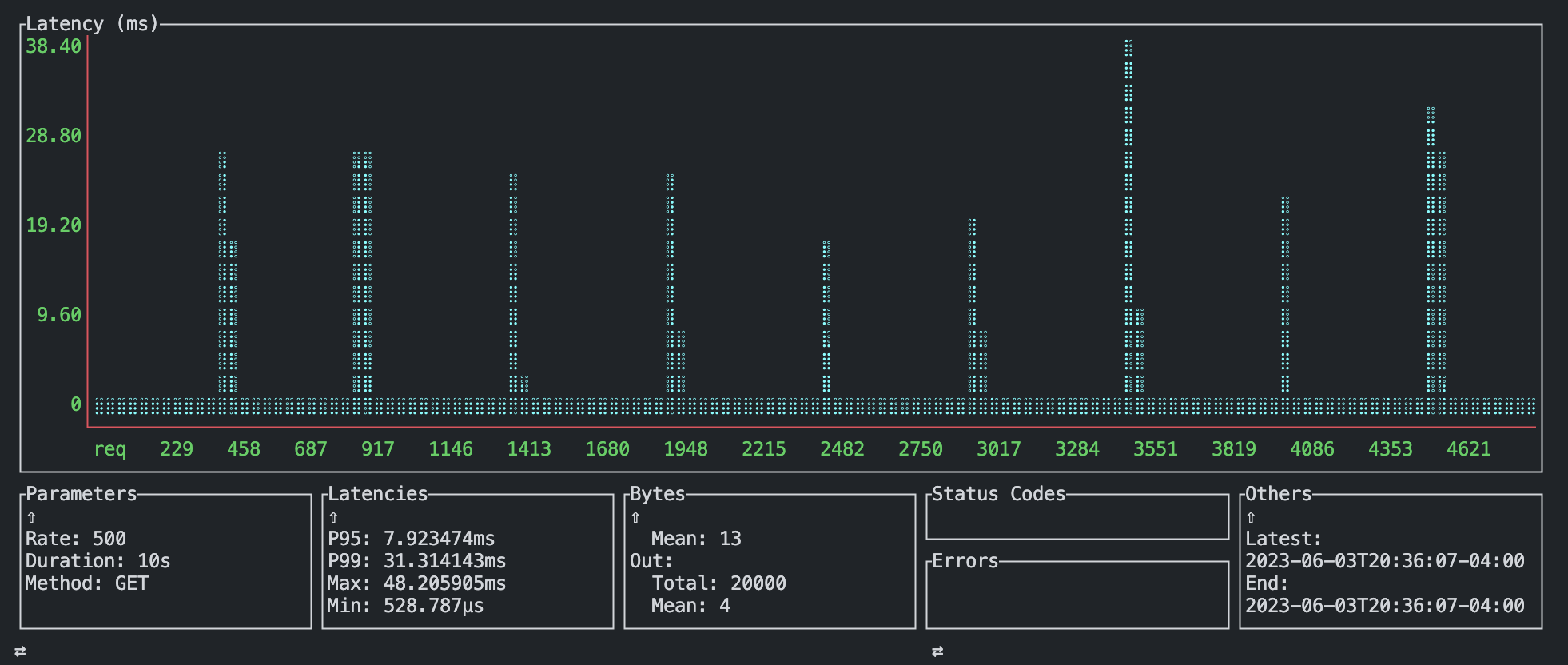 uvicorn @ 500 reqs/s
uvicorn @ 500 reqs/s
 uvicorn @ 1000 reqs/s
uvicorn @ 1000 reqs/s
 uvicorn @ 5000 reqs/s (crash / ddos thresh)
uvicorn @ 5000 reqs/s (crash / ddos thresh)
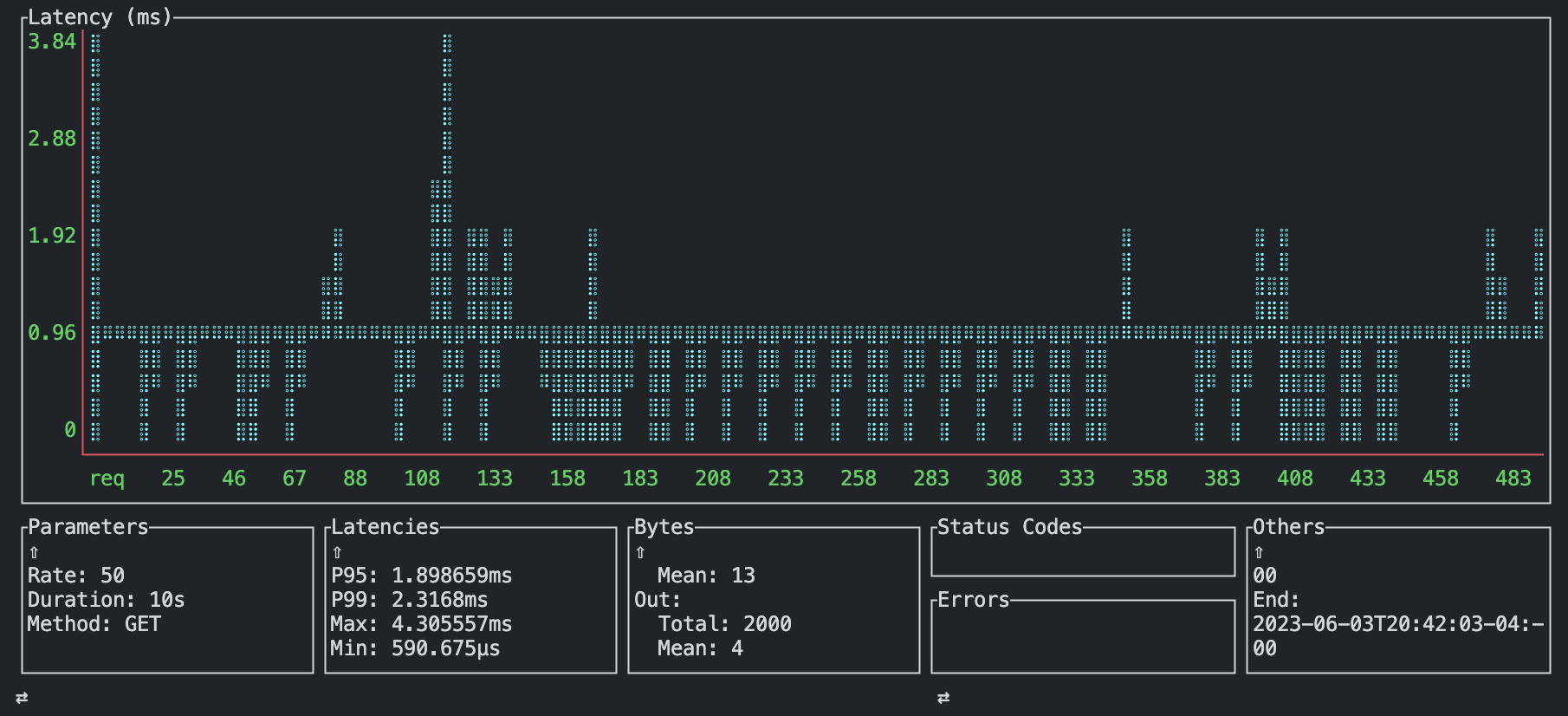 spvn @ 50 reqs/s
spvn @ 50 reqs/s
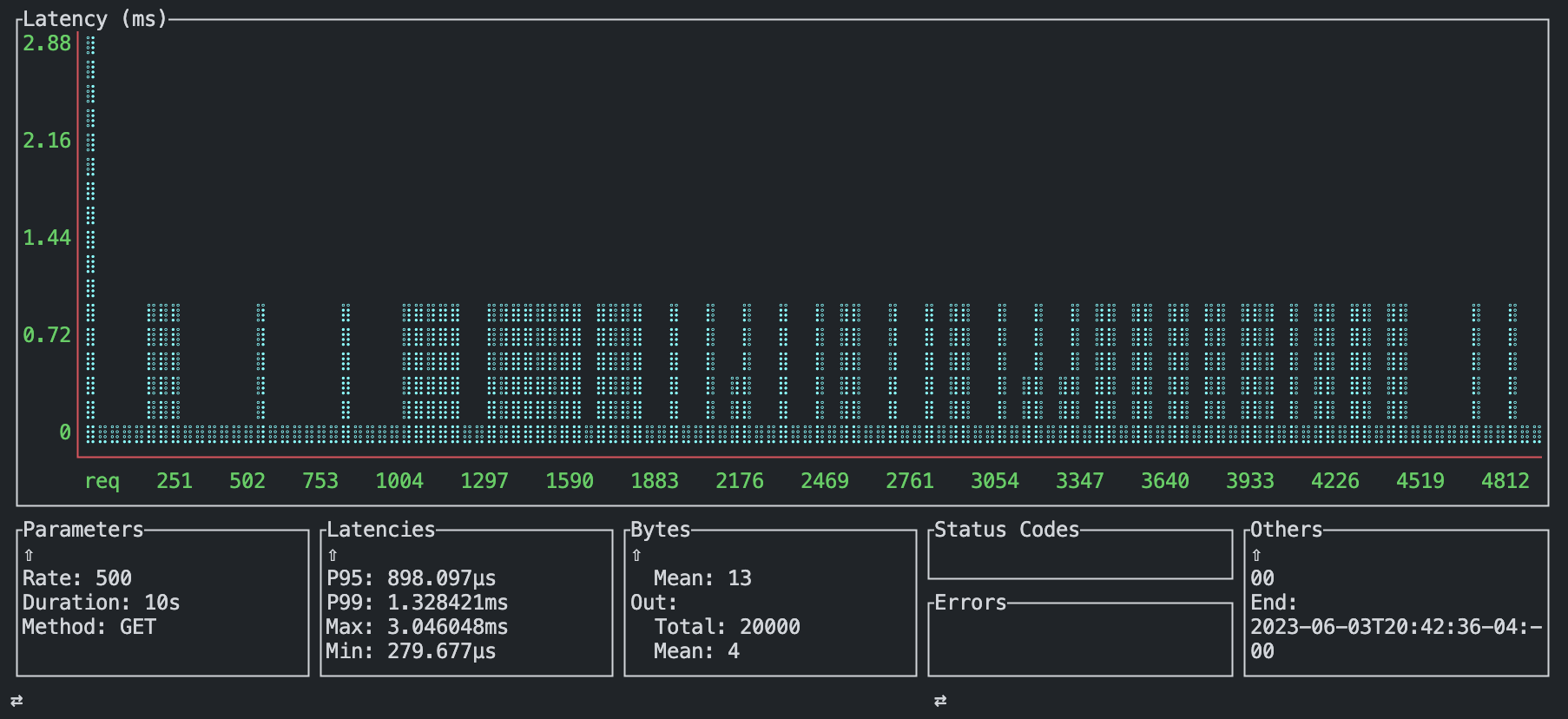 spvn @ 500 reqs/s
spvn @ 500 reqs/s
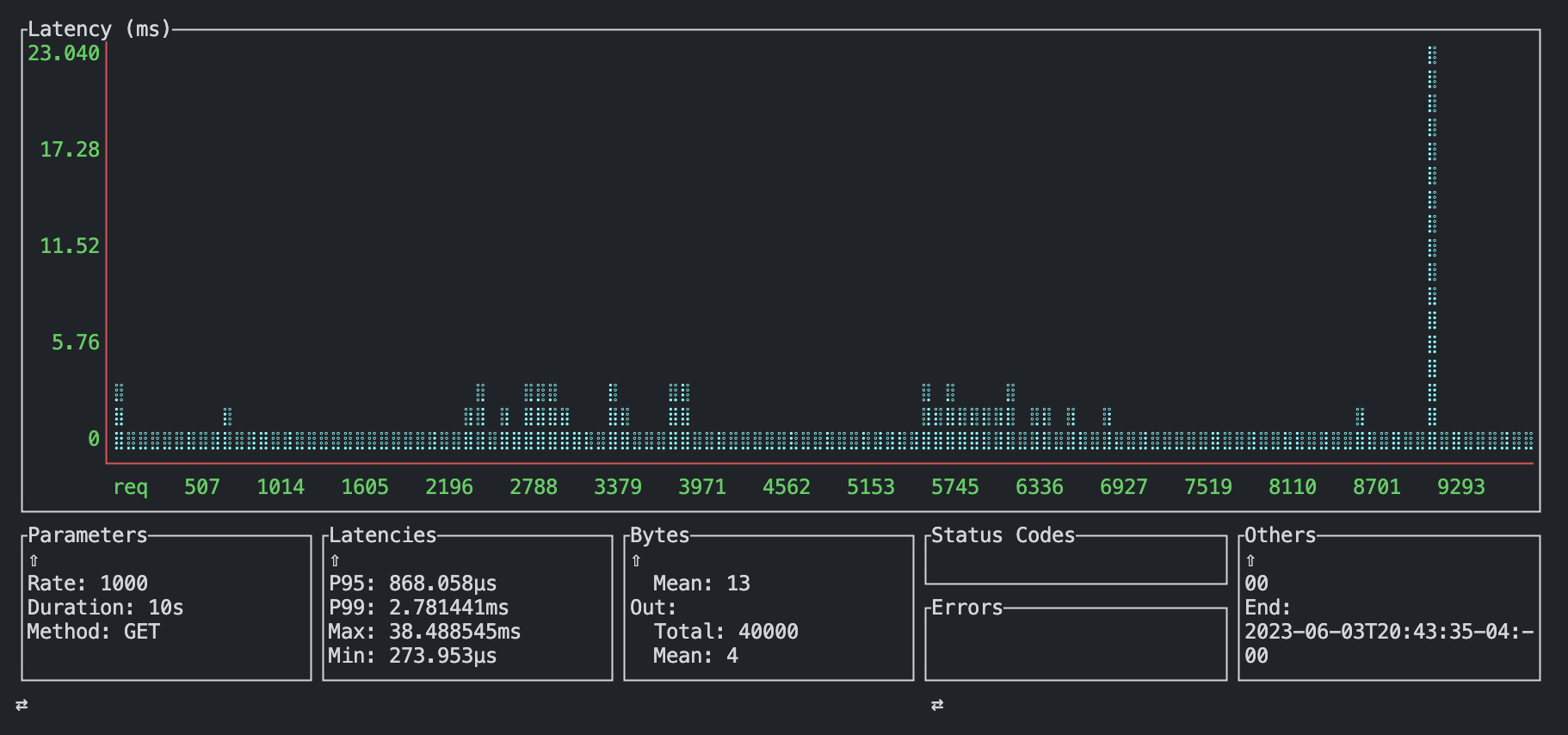 spvn @ 1000 reqs/s
spvn @ 1000 reqs/s
 spvn @ 5000 reqs/s
spvn @ 5000 reqs/s
 spvn @ 10000 reqs/s (dropped requests but continued service <130ms P95)
spvn @ 10000 reqs/s (dropped requests but continued service <130ms P95)
POST Test
Source: https://github.com/serde-rs/json-benchmark/blob/master/data/canada.json






